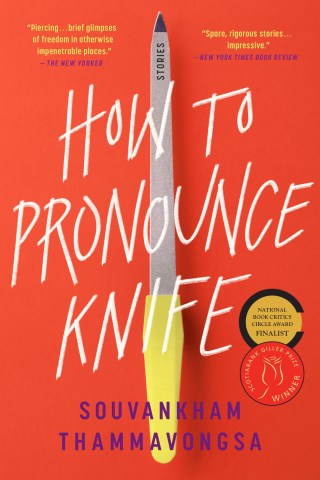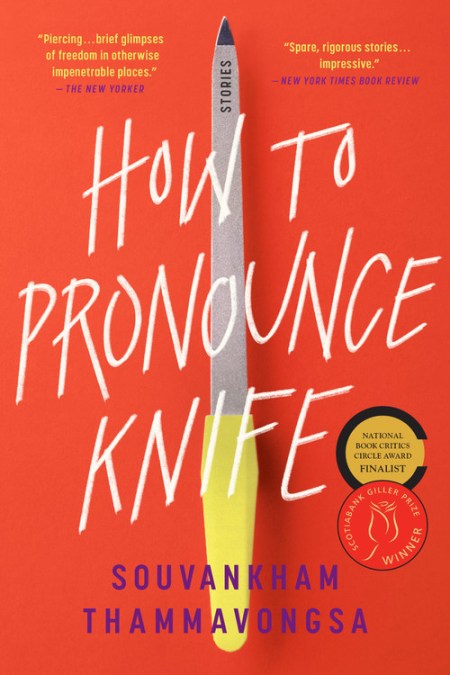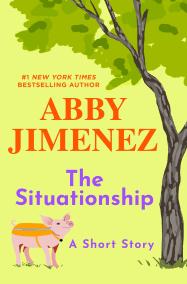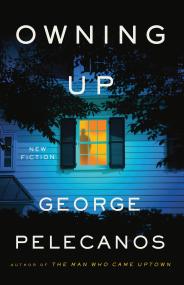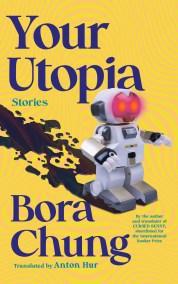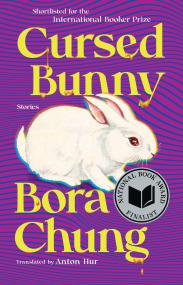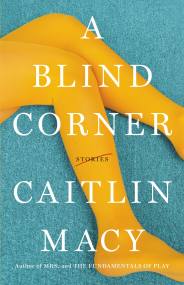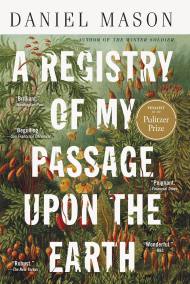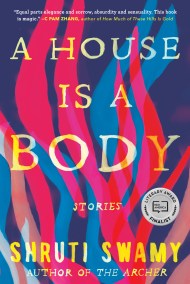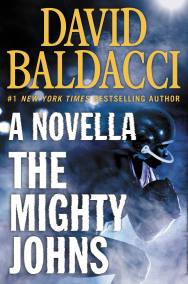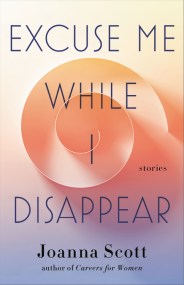Shopping Cart
Praise
*Winner of the 2020 Giller Prize*
*A 2020 National Book Critics Circle Award Finalist in Fiction*
*A finalist for the 2020 PEN Open Book Award*
*Longlisted for the 2020 Believer Book Award*
**Named one of the most anticipated books of 2020 by Electric Literature, The Millions, and Ms. Magazine** **Named one of the most anticipated books of the month by the New York Times, O. The Oprah Magazine, Vogue, Bustle, and Salon**
*A 2020 National Book Critics Circle Award Finalist in Fiction*
*A finalist for the 2020 PEN Open Book Award*
*Longlisted for the 2020 Believer Book Award*
**Named one of the most anticipated books of 2020 by Electric Literature, The Millions, and Ms. Magazine** **Named one of the most anticipated books of the month by the New York Times, O. The Oprah Magazine, Vogue, Bustle, and Salon**
"An impressive debut...Thammavongsa's spare,
rigorous stories are preoccupied with themes of alienation and
dislocation, her characters burdened by the sense of existing unseen... Her gift for the gently absurd means the
stories never feel dour or predictable, even when their outcomes are by some
measure bleak...It is when the characters' sense of alienation follows them home,
into the private space of the family, that Thammavongsa's stories most wrench the heart."
—NEW YORK TIMES BOOK REVIEW
"These poignant and deceptively quiet stories are powerhouses of feeling and depth; How to Pronounce Knife is an artful blend of simplicity and sophistication."
—MARY GAITSKILL, author of VERONICA and SOMEBODY WITH A LITTLE HAMMER
"A stunning collection of stories that portray the immigrant experience in achingly beautiful prose."
—SCOTIABANK GILLER PRIZE judges
"In sparse prose
braced with disarming humor, Thammavongsa offers glimpses into the daily lives
of immigrants and refugees in a nameless city, illuminating the desires,
disappointments, and triumphs of those who so often go unseen...Though short
enough to read in one sitting, [these stories] feel vast in their scope,
offering ample room to wander."
—THE PARIS REVIEW
"I love these stories. There's some fierce and steady activity in all of the sentences-something that makes them live, and makes them shift a little in meaning when you look at them again and they look back at you (or look beyond you)."
—HELEN OYEYEMI, authorof WHAT IS NOT YOURS IS NOT YOURS and GINGERBREAD
—HELEN OYEYEMI, authorof WHAT IS NOT YOURS IS NOT YOURS and GINGERBREAD
"In Thammavongsa's work, refugees don't have to be just tragic or sad but can be imbued with humor, complexity, and the unexpected. Most importantly, Thammavongsa doesn't write for a white audience. She writes, tenderly and profoundly, for her characters. Her love is apparent in her delicate descriptions: confident children protect their parents, workers perform jobs with care and pride, and messy love stories show us that leaving is proof we are alive. The power of How to Pronounce Knife lies in seeing the unseen. I know that firsthand--as the daughter of refugees, I'm able to finally see myself in stories."
—ANGELA SO, ELECTRIC LITERATURE
"Fourteen piercing
sketches illuminate the workaday routines and the interior lives of Laotian
refugees. Characters who undertake 'the grunt work of the world', laboring in
poultry plants, hog farms, and nail salons, also harbor vivid fantasies... brief
glimpses of freedom in otherwise impenetrable places."
—NEW YORKER
"Souvankham
Thammavongsa writes with deep precision, wide-open spaces, and quiet, cool,
emotionally devastating poise. There is not a moment off in these affecting
stories."
—SHEILA HETI, author of HOW SHOULD A PERSON BE and MOTHERHOOD
"Deceptively devastating...strange but biting stories."
—TIME MAGAZINE
"Tinged with melancholy, anger, and a healthy dose of dark
humor, all of these stories exhibit a fierce pride in what one can accomplish.
After leaving everything behind and dealing with a country that does not cater
to you, one can still celebrate the resilience of the human spirit by merely
surviving."
—SALON
"In How to Pronounce Knife, Thammavongsa plumbs the depths and superficialities of what it means to be human. She's at ease in the dark. With authority, her fiction asks: How do we survive? What does it mean to endure?"
—BOMB MAGAZINE
“The stories are slender, spare, and slide between your ribs like a super-sharp blade, fast and soundless, before you realize what’s happening.”
—VANITY FAIR
"Exacting, sharply funny short fictions."
—O., THE OPRAH MAGAZINE
"Thammavongsa's
radiant debut collection of short stories is full of precarity, strength,
uncertainty, messiness and life."
—MS. MAGAZINE
"The stories here will gut you, as Thammavongsa's insight
proves to be razor-sharp."
—BUSTLE
"Every once in a while you come across a book with writing so breathtaking that you take note of the author so you can read everything they ever write in the future. How to Pronounce Knife is one of those books."
—ELLE
"Thammavongsa's careful dissection of everyday moments of racism, classism and sexism exposes
how power and privilege drive success, how work shapes the immigrant identity,
and how erasure and invisibility lead to isolation."
—THE WASHINGTON POST
"With spare, precise prose, Thammavongsa evokes a world of strong emotion made livable by painful, unstable social constraints. The syntactical simplicity of the writing throws the internal complexity of these characters and their situations into stark relief, displaying how restraint can pack an unexpectedly sentimental punch. Quietly poetic, How to Pronounce Knife also produces a shivering recognition in its readers."
—SHELF AWARENESS
"Thammavongsa isn't just gifted at exploring the dynamics of families adjusting to new lives, she's also an immensely talented writer. Her gift for poetry translates perfectly into fiction; her prose is spare but vivid, with no wasted words, and she has an unusual gift for descriptions that stick with the reader. How to Pronounce Knife is a wonderful fiction debut that proves to be a perfect showcase for Thammavongsa's skill with language and her abundant compassion. It's also a reminder of our shared humanity at a time when we need it most."
—MINNEAPOLIS STAR TRIBUNE
"Brings to life figures that might otherwise not figure on
the literary radar, from a failed boxer turned manicurist to a young woman
working at a chicken processing plant and a mother-daughter worm-harvesting
team, with enough panache to keep the reader gripped throughout."
—VOGUE
"These stories feel simple, but they move within you
and it is impossible to let them go. They are sharp and vital. Thammavongsa is
a master over the sentence."
—DAISY JOHNSON, author of EVERYTHING UNDER
"A book of rarest beauty and power. Souvankham
Thammavongsa has already earned a devoted readership for her poetry. And
in each of these exquisitely crafted stories, we experience the profound
emotional effects of economy and distillation. We feel the reverberating
energy around each judiciously placed word. This is one of the great short
story collections of our time. Do not miss it."
—DAVID CHARIANDY, authorof BROTHER and I'VE BEEN MEANING TO TELL YOU
"A riveting,
subversive collection that alights within us like a shock to the system. I find
it miraculous - and liberating and joyful - that language so radiantly exact
can be so raw, so brazen. This is a major work and a lasting one."
—MADELEINE THIEN, author of DO NOT SAY WE HAVE NOTHING
"A book of unusual ferocity and grace. Souvankham Thammavongsa carefully unpacks the aches and aspirations of immigrant and refugee life in tight, commanding prose; and these subtle yet shattering stories glow with empathy, humor, and wisdom."
—MIA ALVAR, author of IN THE COUNTRY
"Reading Souvankham Thammavongsa's How to Pronounce Knife is like finding, at last, a part of you that you had lost and had been searching for all this time. Not since the stories of Edward P. Jones have I encountered such a unified and yet wide-ranging vision-both geographically and emotionally-that captures the spirit of not only a community but of the greater world-then, now, the future. This is a book full of powerful resilience, great journeys, and above all else: fierce, heart-wrenching love."
—PAUL YOON, author of RUN ME TO EARTH
"A beautiful collection of stories about
immigrants in America."
—PEOPLE MAGAZINE
"Thammavongsa has shown herself to bea master of controlled intimacy, eschewing preciousness in favor of aclear-eyed humanity...What all the storieshave in common is the stubbornness of desire manifested by the characters,whether it is the desire to defend your parents against mockery, the desire tofit in, the desire for physical intimacy, or the desire to be seen...This sharpinterplay between defiance and desire throughout the collection is a welcomestrike to narratives that are often demanded of refugee writers--narrativesladen with nobility, the commodification of trauma, and respectability politics...Instead of being foreigners in a newland, these characters make foreigners out of those who would pity them...Thammavongsa hasmade English speak to us in her own language."
—PLOUGHSHARES
"How to Pronounce Knife is a masterful collection, written with so much veracity, you'll swear every word is true. Thammavongsa's prose is spare, the images she evokes so crystalline, they require no embellishment. Here is life, rendered with precision and insight. Instantly recognizable. She offers sharp sensory details, piercing imagery, endings that will punch you in the gut and leave you yearning for more."
—SHARON BALA, author THE BOAT PEOPLE, winner of theHarper Lee Prize
—SHARON BALA, author THE BOAT PEOPLE, winner of theHarper Lee Prize
“Somehow barebones and surreal, Souvankham Thammavongsa's How to Pronounce Knife is a collection whose stories will stay with you long after you've closed the book's cover.”
—BUSTLE
—BUSTLE
“Thammavongsa centers the day-to-day lives of immigrants in fourteen stories, written in a precise and emotionally devastating style...The stories are quiet but shattering—powerful because you can feel how much truth there is in them.”
—ZYZZYVA
—ZYZZYVA
"These stories have a quiet
brilliance in their raw portrayal of the struggle to find meaning in difficult times
and to belong in a foreign place. Thammavongsa writes with an elegance that is
both brutal and tender, giving her stories and their characters a powerful
voice."
—BOOKLIST (Starred Review)
"In under 200 pages, Canadian poet Thammavongsa
showcases 14 spectacular stories in her fiction debut...a poignant,
eyes-wide-open exploration...pristine
short fiction: think Paul Yoon, Jhumpa Lahiri, and Phil Klay."
—LIBRARY JOURNAL (Starred Review)
"These stories, written
in a spare, distant register, twist the heart; Thammavongsa captures in a few
well-chosen words how it feels for immigrant children to protect their parents. Moving, strange, and occasionally piercing."
—KIRKUS
"Sharp
and elegant. . . These brief stories pack a punch,
punctuated by direct prose that's full of acute observations...This is a potent
collection."
—PUBLISHERS WEEKLY
“It put words to what I saw during the pandemic in a way that changed my life.”
—CLAIRE CAMERON, THE MILLIONS
—CLAIRE CAMERON, THE MILLIONS
How to Pronounce Knife
Stories
Description
A finalist for the National Book Critics Circle Award and the PEN Open Book Award, and winner of the 2020 Giller Prize, this revelatory story collection honors characters struggling to find their bearings far from home, even as they do the necessary “grunt work of the world.”
A failed boxer painting nails at the local salon. A woman plucking feathers at a chicken processing plant. A housewife learning English from daytime soap operas. A mother teaching her daughter the art of worm harvesting. In her stunning debut story collection, O. Henry Award winner Souvankham Thammavongsa focuses on characters struggling to make a living, illuminating their hopes, disappointments, love affairs, acts of defiance, and above all their pursuit of a place to belong. In spare, intimate prose charged with emotional power and a sly wit, she paints an indelible portrait of watchful children, wounded men, and restless women caught between cultures, languages, and values. As one of Thammavongsa’s characters says, “All we wanted was to live.” And in these stories, they do—brightly, ferociously, unforgettably.
Unsentimental yet tender, taut and visceral, How to Pronounce Knife announces Souvankham Thammavongsa as one of the most striking voices of her generation.
“As the daughter of refugees, I’m able to finally see myself in stories.” —Angela So, Electric Literature
Unsentimental yet tender, taut and visceral, How to Pronounce Knife announces Souvankham Thammavongsa as one of the most striking voices of her generation.
“As the daughter of refugees, I’m able to finally see myself in stories.” —Angela So, Electric Literature
